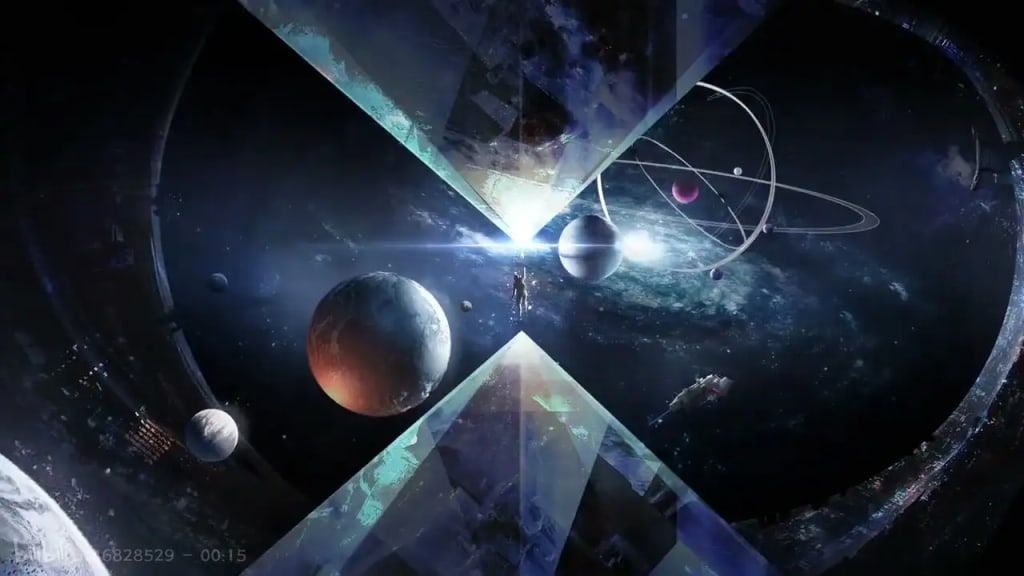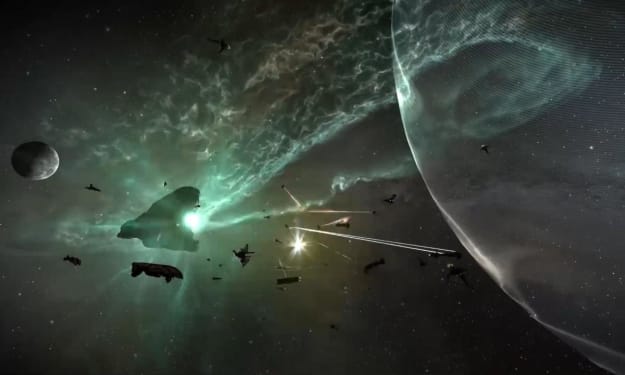Is Liu Cixin's novel the Three-Body Problem worth reading?
The biggest charm of science fiction is that it allows you to view real life and human history from a higher perspective. Many events that we think have changed the world are actually so "insignificant" in front of the vast universe.

Many years later, I still remember the wee morning when I finished reading Liu Cixin's The Three-Body Problem. The east was white then, and I could not sleep. Inside, I felt a strange calm, awed by the universe and re-examined my human nature. I arrogantly thought it was a spiritual experience with a religious tinge, peace, openness. Recently, there is a very popular online video about the Three-Body Problem, called Han Lu Teaches the Three-Body Problem. I stumbled upon it, clicked in, and spent 52 minutes listening to Han Lu's explanation of "Once upon a Time on Earth," the first part of the "Three-Body Problem" trilogy. I have to admit, Han-ro is really good, it has been many years since I finished reading the Three-Body Problem, and I have forgotten much of the plot. But Hanlu's concise, logical explanations brought me back to the great three-body world. In particular, he used a very simple example to explain the concept of "quantum entanglement" in the first issue, which was quite enlightening. I saw people constantly brushing on the bullet screen, "JUST can't read the original work, listen to Han Lu's talk is enough", "talk as wonderful as the original work". I was instinctively alarmed by such comments. I strongly object to the "listen to me, you don't need to read" argument. Although Hanro himself does not claim to do so, many in his audience do. Again, the classic question -- can the storyteller read for me? I've always said no, but this time I have a little doubt. "For the three-body problem, which is not known for literature, can we just listen to the explanation?" . The storyteller could even explain the concept of "quantum entanglement" to me in a way that I couldn't do on my own. With this question in mind, I re-read the Three-Body Problem: Once upon a Time on Earth. After reading the book, I felt ashamed that I had ever had such doubts. The gap between Han lu's explanation and liu Cixin's original work may be the gap between earth technology and three-body technology. Hanlu's explanation begins with the earth's basic science being locked up by the three-body technology, and a large number of scientists committing suicide. Then it turns to the story of wang Miao, a nanomaterial researcher, who is constantly staring at a strange countdown. I looked at it, and it happened on page 20 of the book. But in fact, on page 12, there is a conversation that I think is the cornerstone of the book that Hanlu does not mention. "Wang, do you have any significant changes in life... for you, the world overnight become completely different" "no," "your life is a kind of coincidence, then, the world there are so many unpredictable factors, your life is nothing changes" "most people are so" "that most people life is accidental" "but... Generations of people have come along like this..." "All by chance." "Don't you say..." "Yes, the whole of human history is also accidental. There have been no major changes from the Stone Age to this day, and that's lucky... Now I tell you, it's over..." It is through this dialogue between Chang Weisi and Wang Miao that Liu Cixin makes clear the theoretical foundation of the book -- the objective world is full of uncertainty, which is also the foreshadowing of the unpredictable three-body world. If not read in person, this conversation is omitted in the one-sentence background that "Earth's basic science is locked up and scientists commit suicide." Listening to a book does have many advantages. It allows you to grasp the outline of the story in the shortest time. The downside is that a lot of detail is lost, and the emotions simmering in the book are less likely to reach you. Han lu explains at length how Wang Miao kills a huge ship with nanomaterials, which is fascinating, but he doesn't have room for the following plot. On the Panama Canal, as the great ship of earth rebels sails in, the blade rises, ready to send the whole ship to hell. Scientist Wang Miao and General Stanton look on. "The second time I came to Panama in 1999, I attended the ceremony for the handover of sovereignty over the canal... When we arrived at the authority building, we saw the stars and stripes coming down... I thought we were witnessing a historic moment, but now I think how small these things are," Stanton said. This is the biggest charm of science fiction. It allows you to view real life and human history from a higher perspective. Many events that we think have changed the world are actually so "insignificant" in front of the vast universe. And this kind of emotion can not be obtained in the book, can only be experienced slowly through the countless details described in the book. Even when I read the Three-Body Problem again, I found that my previous impression that the three-Body Problem is not good at literature may not be correct. As a science fiction novel, the writing of Liu Cixin, an engineer by training, is certainly not flashy, but it is still full of literary beauty. For example, in describing the time when Ye Wenjie lived in Qijiatun, Liu wrote: "In Ye Wenjie's memory, this time did not seem to belong to her, as if it were a piece of someone else's life, flying into her own life like a feather. This memory is condensed into a series of European classical oil paintings. It is strange that there are either Chinese paintings or oil paintings. There are too many blanks in Chinese paintings, but there are no blanks in qijiatun's life, just like classical oil paintings, full of rich colors that cannot be melted. Everything was strong and warm: the heated kang covered with thick urchins, the kato and moho smoke in a copper pot, the thick sorghum rice, the 65-degree kaoliang liquor... But all this flowed away in silence and peace, like a camp stream. To compare life to painting, can only be rich oil painting, such description is beautiful and warm, lifting a heavy weight as light. This paragraph alone, even if put in pure literature works, is not to mention much let the excellent work. This is why we always insist on reading the original book. No matter how well the storyteller tells it, it is only seasoning, which can make the aroma of the dish stronger and the color more attractive, but only the real paper, ink and words are the dinner. When "Han Lu tell the three-body" played over, I think Han Lu speak good. But I still remember that early morning, all those years ago, when I finally closed the Three-Body Problem, I felt the whole universe winking at me.
About the Creator
Enjoyed the story? Support the Creator.
Subscribe for free to receive all their stories in your feed. You could also pledge your support or give them a one-off tip, letting them know you appreciate their work.





Comments
There are no comments for this story
Be the first to respond and start the conversation.